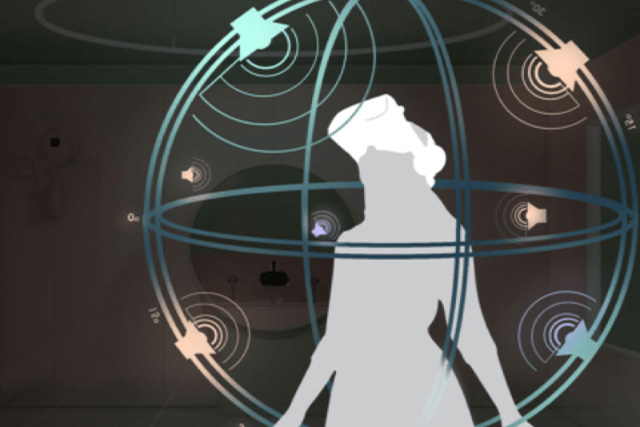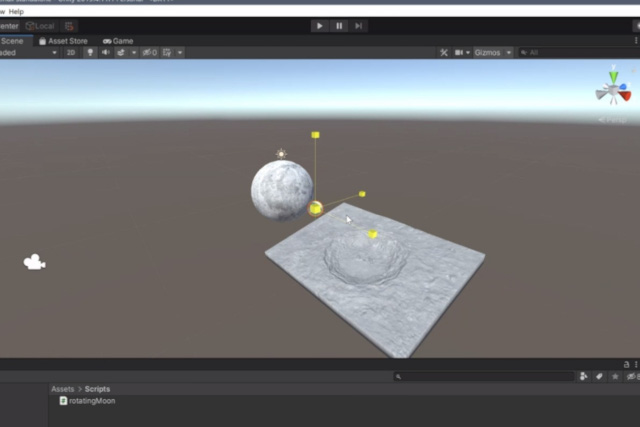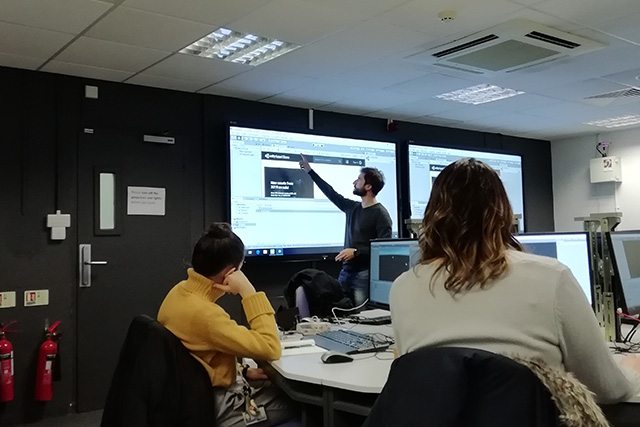Perceptual Learning in Adaptive Hearing Conditions
Perceptual Learning in Adaptive Hearing Conditions

Perceptual Learning in Adaptive Hearing Conditions
Ana Sánchez Jiménez, Department of Physiology, Anatomy and Genetics, University of Oxford, under the supervision of Prof. Andrew King, in collaboration with the OXR Hub.
This research on audition focuses on behavioural measurements of the sound localisation abilities of humans. The aim is to determine the role of training in promoting the recovery of accurate spatial judgments following partial loss of hearing in one ear. In the past, this was traditionally tested using a fixed array of loudspeakers, which would project sounds from different directions relative to the participant’s head.
With the assistance of Dr Mattia Montanari from the Oxford X-Reality Hub, the project was able to implement a much more powerful and flexible virtual reality system to undertake the study. This will enable the team to measure sound localisation in participants when they experience a range of listening conditions. In particular, it will enable the project to test whether training regimes developed to facilitate adaptation to simulated conductive hearing loss generalise to more naturalistic acoustic environments and therefore to assess their therapeutic potential.
The implementation of this virtual reality setup will greatly expand the scope of this research on the adaptive plasticity of spatial hearing, by allowing the use of personalised auditory filters that reproduce the spatial cues available to individual listeners, which can then be manipulated to simulate specific types of hearing loss in a more controllable and reproducible fashion than was previously possible. This will also make it easier to add in background noise or reverberation to simulate different room sizes and characteristics. Finally, the development of a portable virtual reality setup represents a major step towards achieving the aim of utilising the plasticity of auditory spatial processing in the brain to help people adapt to hearing loss, which is predicted by the WHO to affect 25% of the global population by 2050.


